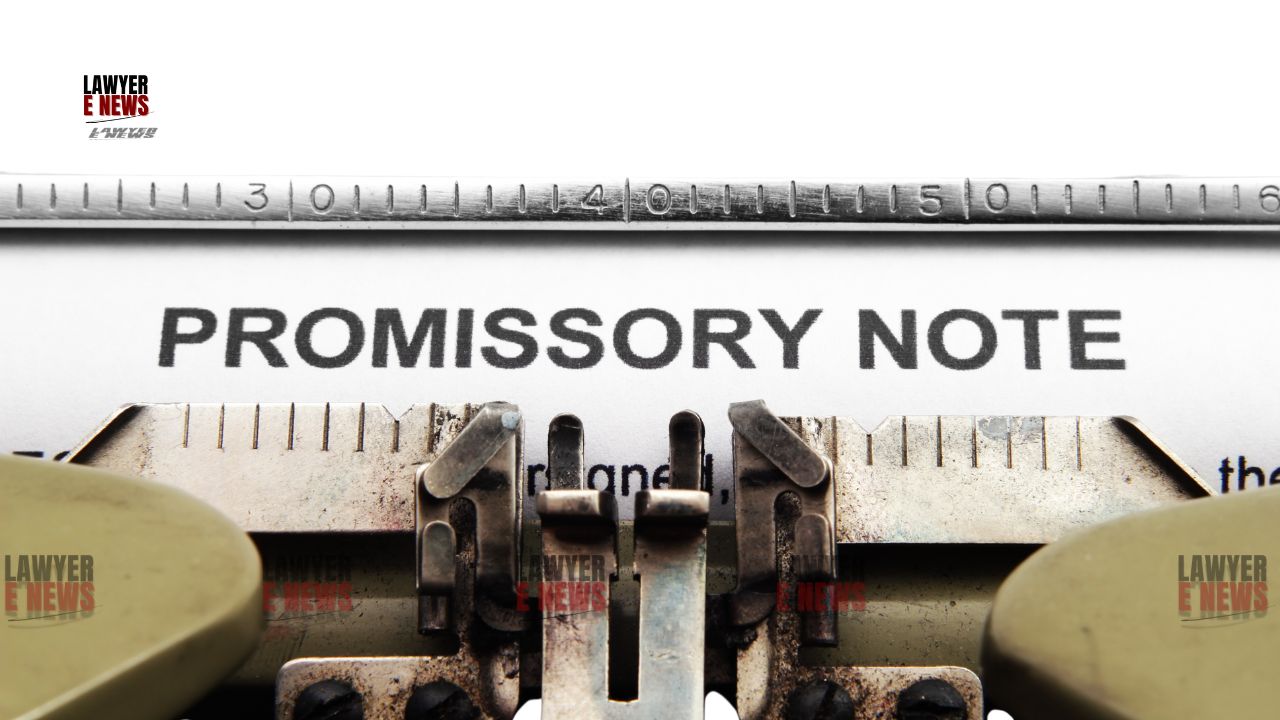-
by Admin
15 February 2026 5:01 PM



In a significant ruling, the High Court of Andhra Pradesh at Amaravati has upheld the judgment of the Additional Senior Civil Judge, Guntur, in a dispute over the validity of a promissory note. Justice V. Gopala Krishna Rao, presiding over the case, dismissed the appeal filed by Gutha Baby, reaffirming the trial court’s decision that validated the promissory note despite the appellant’s allegations of forgery.
The respondent, Ravi Gopala Krishna, filed a suit for the recovery of ₹76,000, which included the principal and interest based on a promissory note allegedly executed by the appellant, Gutha Baby, in favor of one Ganta Udaya Lakshmi on November 20, 1986. Despite several demands, the appellant allegedly failed to repay the loan, leading to the transfer of the note to the respondent. The appellant denied borrowing the money, claiming the promissory note was a forgery.
The primary issue before the court was the authenticity of the promissory note (Ex.A2) and the endorsement of its transfer (Ex.A1). The plaintiff presented evidence through PW1, the scribe of the promissory note, who testified about witnessing the transaction and the execution of the note. The court found the testimonies of PW1 and PW2, who corroborated the passing of the consideration, to be credible and consistent.
The appellant contended that the promissory note was forged, and no such transaction ever occurred. However, the appellant failed to provide any substantial evidence to support this claim. The trial court had compared the disputed signatures with the admitted ones and found them to be identical. The High Court, upon independent evaluation, concurred with this finding, dismissing the forgery allegations.
The High Court reiterated that the burden of proving the forgery rested on the appellant. Given the lack of evidence to discredit the testimonies of PW1 and PW2, and the appellant’s failure to opt for a handwriting expert, the court concluded that the promissory note was genuine. Furthermore, the court referenced the precedent set in G. Vasu vs. Syed Yaseen Sifuddin Quadri (AIR 1987 A.P. 139), underscoring the principle that the presumption of consideration under Section 118 of the Negotiable Instruments Act stands unless convincingly rebutted.
Justice V. Gopala Krishna Rao noted, “The evidence required to shift the burden need not necessarily be direct evidence... the appellant failed to discharge her burden in the case on hand.” He further emphasized, “The trial court has taken pains to compare the signature of the borrower on the original pronote with that of the admitted signatures... and came to the conclusion that the signatures are identical.”
The High Court’s decision to dismiss the appeal and affirm the trial court’s judgment underscores the judiciary’s meticulous approach in evaluating evidence, especially in cases involving allegations of forgery. This ruling reinforces the principle that mere allegations, without substantial proof, cannot overturn the presumption of validity attached to negotiable instruments. The judgment is a significant precedent, emphasizing the necessity of concrete evidence in claims of document forgery.
Date of Decision:July 31, 2024
Gutha Baby vs. Ravi Gopala Krishna
